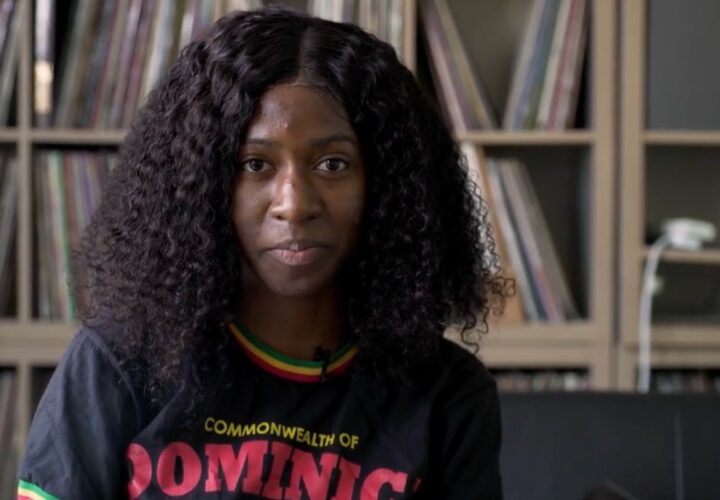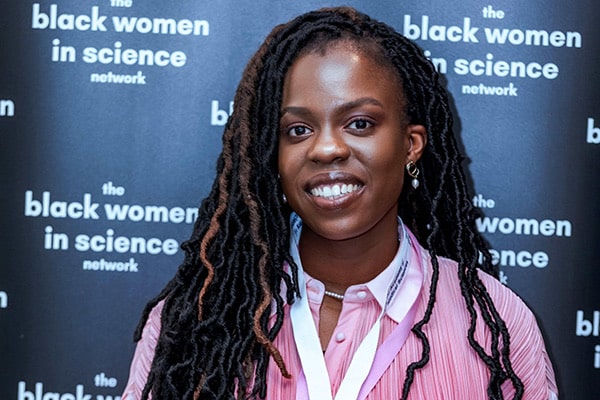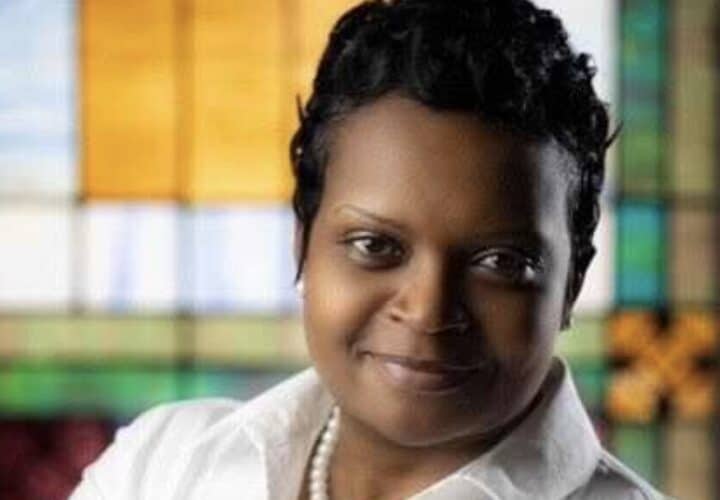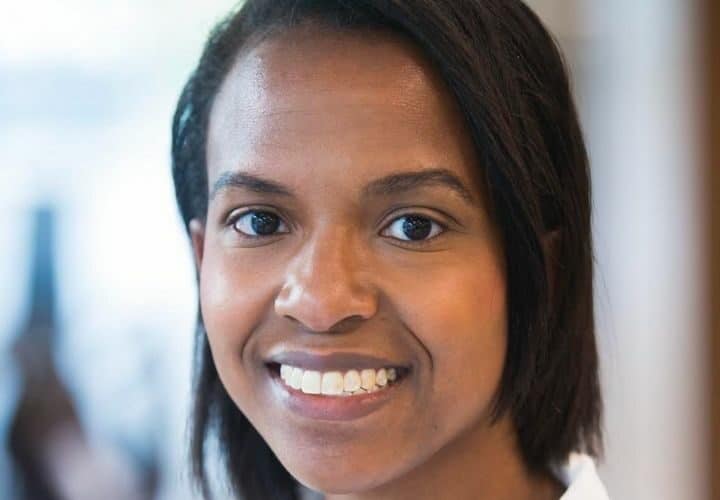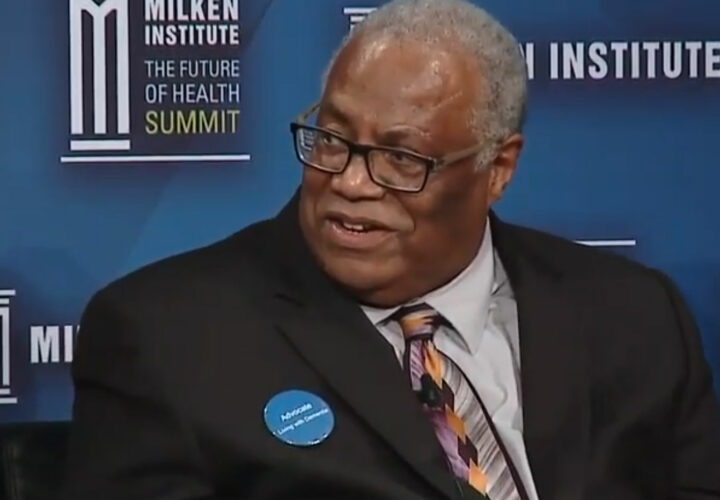Dominica Dementia Foundation founder and documentary filmmaker Rianna Patterson began her advocacy journey when she was just 18. She believes young people have the power to eliminate the stigma around dementia.
This article is part of the series Diversity & Dementia, produced by Being Patient with support provided by Eisai.
When a member of your family, particularly a loved one, gets dementia, it can change your whole life. This can be especially true in marginalized communities, where the disease is not often spoken about: In this case, the experience of caring for a loved one going through cognitive decline can be incredibly isolating. It becomes a time when you turn to community resources, or in the case of Rianna Patterson, when you start building them.
In 2016 at the age of 18, just two years after her grandfather started to show signs of dementia, Patterson founded the Dominica Dementia Foundation, a youth-led dementia charity supporting families and care homes affected by dementia.
At every stage of building the charity, she told Being Patient, “I thought of in terms of, ‘What I would have wanted for my 16-year-old self and her family?’” Focusing on how the youth in Dominica and throughout the Caribbean could learn and advocate for dementia, Patterson’s advocacy work continues with the foundation and her projects.
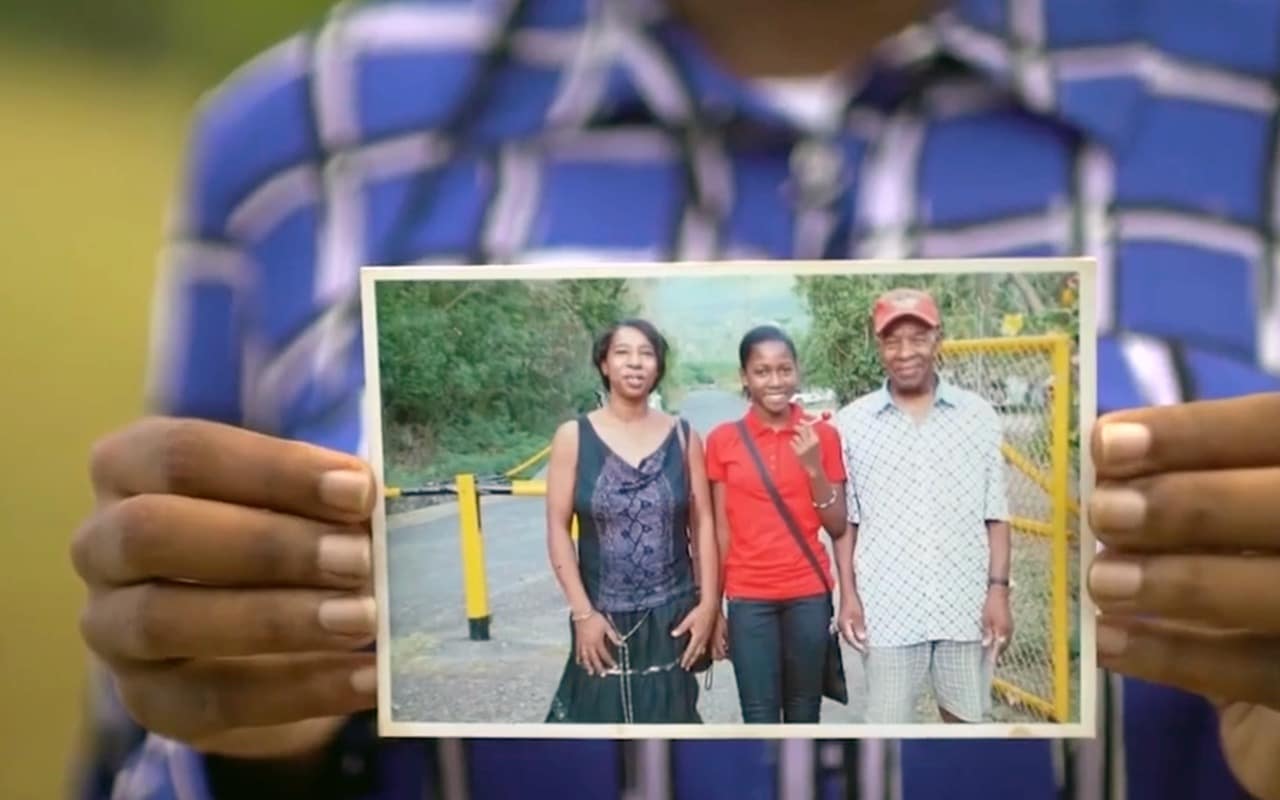
In 2017, Patterson was honored as a recipient of the annual Queen’s Young Leader award, established by the Queen Elizabeth Diamond Jubilee Trust, her commitment to dementia advocacy. In 2022, she was named a finalist of the Commonwealth Youth Awards for Development Excellence in the Caribbean Region. Now, Patterson has finished filming her documentary on dementia in the Caribbean, Dementia: The Island Journey and is currently fundraising to receive a master’s degree in dementia from UCL.
Patterson joined Being Patient Editor in Chief Deborah Kan to share her experience with advocacy work and how young people can change the face of dementia. Watch the full talk here, or find a transcript of the conversation below.
Being Patient: Could you tell us a little bit about your grandfather and how you started this journey?
Rianna Patterson: I’ve been describing him recently as my cricket partner. We used to do cricket together. He taught me a lot of gardening and life skills, like making bird cages. He was really much a father figure to me because my own father passed away when I was really young. So, he’s been very instrumental in my upbringing. I think I’ve been raised by my grandparents, mainly, and, you know, with the support of my mom as well. He was a quiet man but very much a peacemaker of the family as well. So, when we lost him, there was this dis-fragment in the family, you know. You could really feel that his presence was no longer there, and we all felt the loss.
Being Patient: How old were you when he first started to show signs of dementia?
Patterson: I was 16 at the time. It kind of ranged from him expressing that there’s a leak in the house, which is quite normal. You know, there are always leaks in the house and so forth. But it was quite occurrent, and we kept checking in, and there was no leak. So, that was one kind of sign, but I didn’t identify that as a sign until he was bringing me to school when there was a dog in the road. He almost kind of crushed into the dog and started ruminating on that experience. So, we then started to think about, “Okay, there is a cause for concern. He’s ruminating, which he doesn’t do.” Then also, he’s never had an accident in his life, ever. So, to kind of lose control of the steering wheel was also an alarm sign for us as well.
“I was just trying to understand it
as best as I could, so I could
support him during that time.”
I didn’t make the link to dementia until he was hospitalized. Then I started kind of exploring what dementia is, what memory issues are associated with what mental disorders, and that sort of thing. I was just introducing myself to that world as well. I was just trying to understand it as best as I could, so I could support him during that time.
Being Patient: You were living in Dominica in the Caribbean at the time. Culturally speaking, is dementia talked about in your community?
Patterson: I would say that it’s definitely an upcoming topic in the community. There’s a lot of talk of mental health, but dementia is definitely something that’s been recently discussed. We have a lot of people talking about dementia on radio shows now, which is quite good, and then also in online print. We’ve got the Dominica News Online, and normally at the Dominica Dementia Foundation, we also share insights that way with the public.
Being Patient: Within your own family, what was the conversation like about dementia and your grandfather?
Patterson: To be honest with you? I don’t think we really had a conversation because everyone was dealing with it in their own way. I mainly spoke with my parents. Then also, I had a conversation with the therapists at my school as well, in terms of how I’m feeling, how I’m doing, what I’m experiencing, that sort of thing. But in terms of actually having a sit-down conversation with all three of us, that was quite hard. We never really spoke about it. We were just kind of getting on with it, I think.
Being Patient: For some communities, when it comes to dementia, it can be hard to have a conversation about it. We see this in marginalized communities in the United States and beyond. As a Black woman in Dominica dealing with this diagnosis, did you find your family had a hard time talking about it?
Patterson: I think it was more about just dealing with it on a family basis, and even sharing progress as to where he is, in his stage of dementia, is something that we really kept the family in the loop in. It was quite difficult because we were trying to understand it and go through our own stages of healing and processing. So, we kind of just kept it on a family level. I mean, I told a few of my friends, but you know, at that stage, they didn’t really understand, you know, the complexity of dementia. So, that was also another underlying barrier in terms of communicating with the family.
Being Patient: At the age of 18, you started Dominica Dementia Foundation. Tell us more about that.
Patterson: I started the Dominica Dementia Foundation with a few of my college friends. They were like the pioneers with me in this fight there. I had to just kind of create a community where all the people I acknowledge celebrated, we can share resources, and I kind of banked all of the aims of the dementia foundation. Based on my own personal experiences, I wanted people to know more about dementia because I didn’t know a lot about dementia and families to be supported because I didn’t feel like my own family was supported. Then we didn’t have research that we could pull and say, “Okay, this is research on dementia in Dominica.” I wanted to contribute in that area to have, you know, localized research on dementia.
“Young helping old, old helping young—
there’s so much that we can learn from
each other when we have a space like that.”
Since then, it was young people, so it was youth-led, and then I just kept with that model. I felt like it needs to continue to be youth led to having that intergenerational approach. Young helping old, old helping young— there’s so much that we can learn from each other when we have a space like that. You know, a lot of the time, dementia charities are governed by older people because it’s seen as an older person’s disease, which is not necessarily the case. As well as you know, there’s childhood dementia from infancy to 18. There’s also young onset dementia, which is in your 30s.
Dementia itself is evolving as we are an aging population. The young are getting old, and the older are getting older. Having that kind of framework really works for Dominica and hopefully can exhibit in other countries as well.
Being Patient: You also have been working on a documentary, Dementia: The Island Journey. Could you tell us a little about what inspired that?
Patterson: This started, around 2020, because I was in university then. My gran actually passed away in my second year of university, and that kind of hit me quite hard. We were very close, and we went through the whole process with my grandfather experiencing dementia. So, it was also another great loss for the family. You know, I love her dearly, and I still remember her to this day. The idea of a documentary came to me when an organization came to me to ask if I could be a part of their documentary, and I was very excited. I started to think about what I would say, but it didn’t really work out, unfortunately.
So, I was just kind of left with the idea. It was a 15-minute slot or so, and I thought, “How can I turn this maybe into a feature film?” Then I started to think about who I can speak to and what I wanted it to look like, and I just kept evolving the idea from there. I started to look at a team, and then it was the pandemic. Then the idea was like, “Okay, can I make this film the same kind of, you know, aims and objectives that I want it to be?” I just felt like it wasn’t the right time. Coronavirus would just kind of turn it on its head. It wouldn’t be what it needed to be, so I took that executive decision and decided to postpone it.
I think that was a really good move on my part because I was able to go down last year. It was amazing because there were no pandemic restrictions, everyone could just be free and be themselves and just express the culture and the vibrancy of the community. It definitely showcases itself in the documentary. So, that is kind of like how it came about. I didn’t have, you know, a grant or anything. So, I had to crowdfund this project. It took me about two years to do that as well. The project has evolved from where it was in the beginning to where it is now. Surely, and personally, I think I have, you know, grown in patience and in love. It’s been a labor of love, and I can’t wait for everyone to see it.
Being Patient: One of the things that I love about the documentary and about your work is that you really present living with dementia versus dying with dementia. Why was it important for you to do so?
Patterson: I’m so tired of documentaries, just showcasing other people as vulnerable, as fragile as not being capable. It doesn’t help the cause because there are a lot of people who have dementia that are quite up with it. Their memories are, you know, fantastic. They are working towards living well with dementia or actively living well with dementia. I wanted it to be encouraging for someone living with dementia watching this documentary or think like, okay, “Maybe I might even go to the Caribbean one day.” I want people to look at this documentary, and think about their lives and reflect. Just think that you know, if they are not capable, they are capable with help. Maybe you just need additional support in that way.
You know, we all deserve to have a quality of life. That is why I wanted to show living well instead of dying. Because, you know, there are both realities that we have to acknowledge, but I think it is worth amplifying living well because it’s not really shown in the media as much.
Being Patient: You’re just 25 years old, and you’ve learned a lot about dementia from running your organization and doing this documentary. What would you like other people to know about what you’ve learned?
Patterson: I want to definitely let them know that there’s more to the person than dementia. As I was saying, my grandfather was an avid cricket fan. Learning about the person outside of dementia is very important because it will also help you to better care for them and help me to understand where they are in every stage of their dementia diagnosis. I will also say that you know, it’s more than just losing your memory. In some people with dementia, their memories are intact, and they only experience behavioral or personality changes. It’s just bearing that in mind, being open-minded to what dementia might look like because there are common symptoms that you can look at. But it will definitely appear differently in different people because we’re all different in our own way.
“I wanted to show living well instead of dying.”
Then, obviously, it’s possible to live well with dementia. I think that’s something that young people need to understand. Because, for example, if they normally go to the carnival with their grandparents, as you do, you can still bring them to the carnival is not a problem. Depending on the stage of diagnosis, they might not have sensory issues, and you know, the noise might not be too loud, and the colors might not be too bright at the time, you know, that they’re at. So it’s definitely possible to still bring them to events, and it’s encouraged to still have them be part of the community because that’s what it’s all about. So, that’s what I would tell young people.
Being Patient: You’ve done so much work with your Dominica Dementia Foundation over the years. Can you share with us some of the most rewarding moments from your work?
Patterson: When we did arts and dance therapy, I really enjoyed that, and so did the older people. We’ve done a lot of care home visits over the years, and with the dance and art therapy, you just see people light up. You know, they enjoyed it. Then we did Christmas carols. There was this one lady, she had, like, every song request that you can, you know, she came with a blessing. Then we would sing, and, you know, the place would just fill up with joy.
“They might not remember us tomorrow or
in the next five minutes, but they will hold
on to that emotion of happiness and joy.”
It’s just amazing to see, you know, the intergenerational link that I was discussing earlier on, how impactful it can be in just brightening someone’s day, someone’s mood. I tell people they might not remember us tomorrow or in the next five minutes, but they will hold on to that emotion of happiness and joy, and that is worth something. It was just a really beautiful thing to experience with everyone.
Being Patient: You’ve been accepted into a master’s program studying dementia. Tell us more about that.
Patterson: I’m currently working on pursuing a master’s degree in dementia at UCL this September. I’m currently crowdfunding actually to finance this degree. So if anyone wants to support, share it, or contribute in some way, then they can go to my GoFundMe page. I’m very excited about that because it will definitely establish me as a dementia professional, so I can continue to take on research positions. So, I can look at dementia in a global context because that’s the end goal for me to just make this world dementia friendly.
Katy Koop is a writer and theater artist based in Raleigh, NC.
